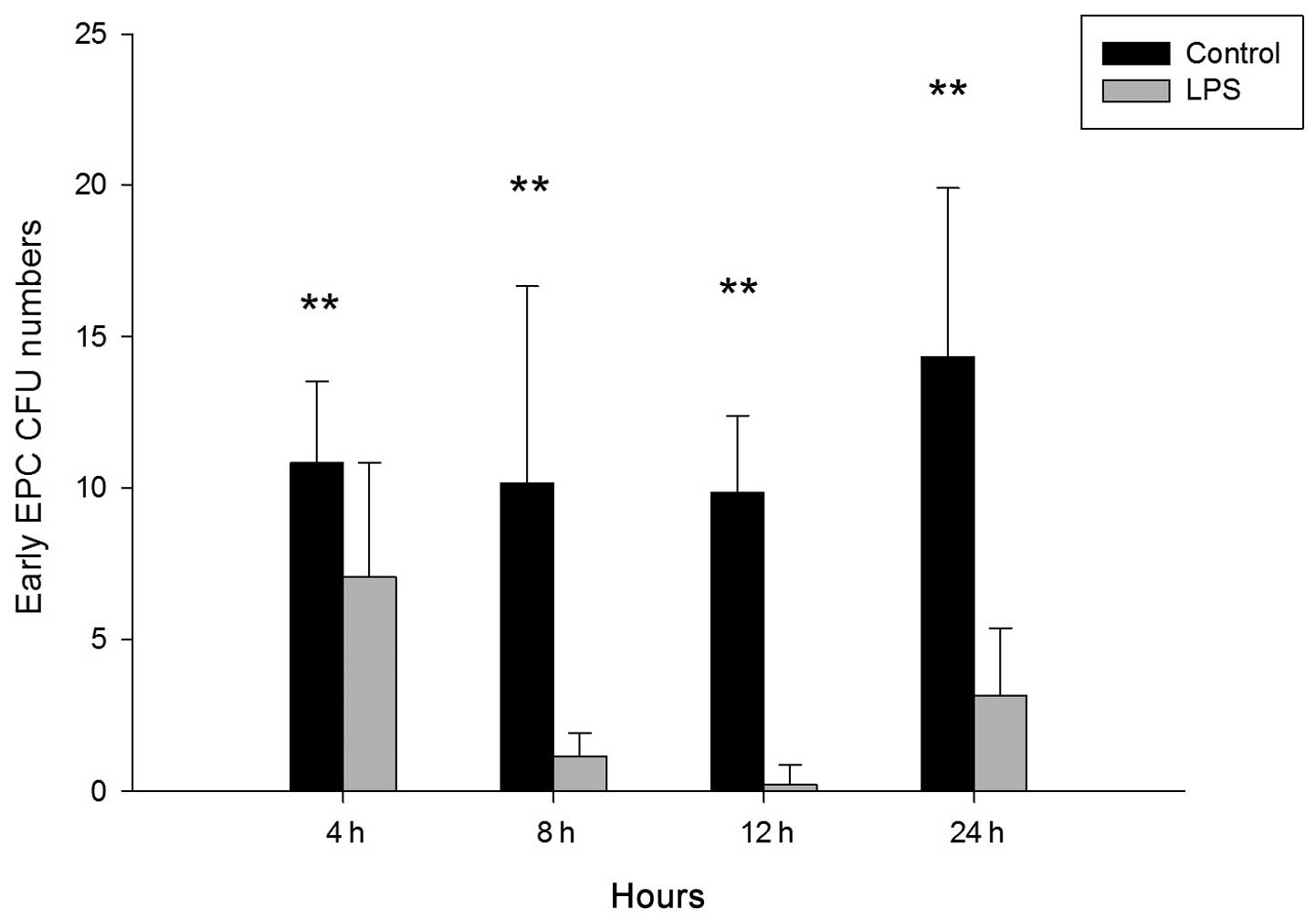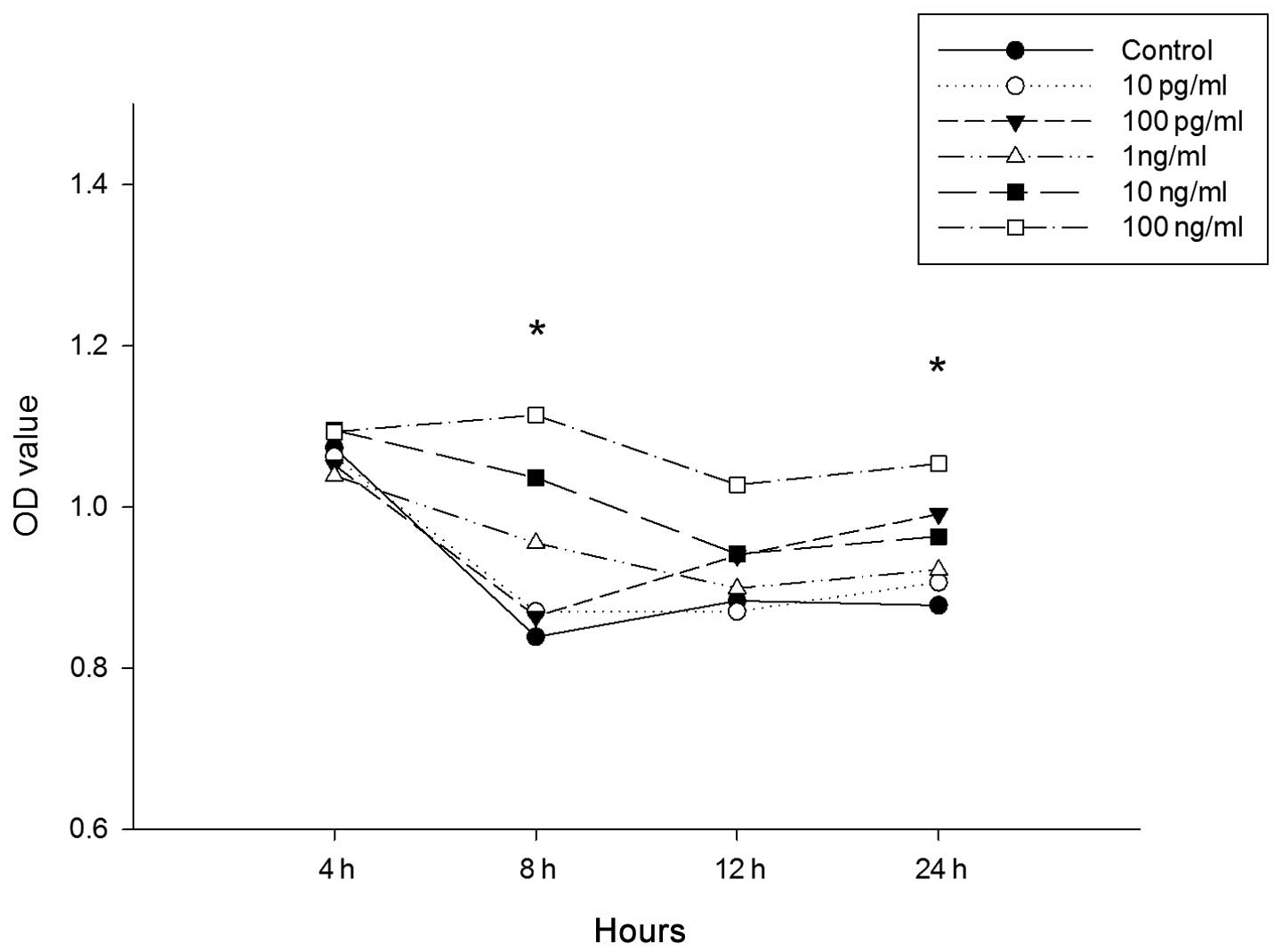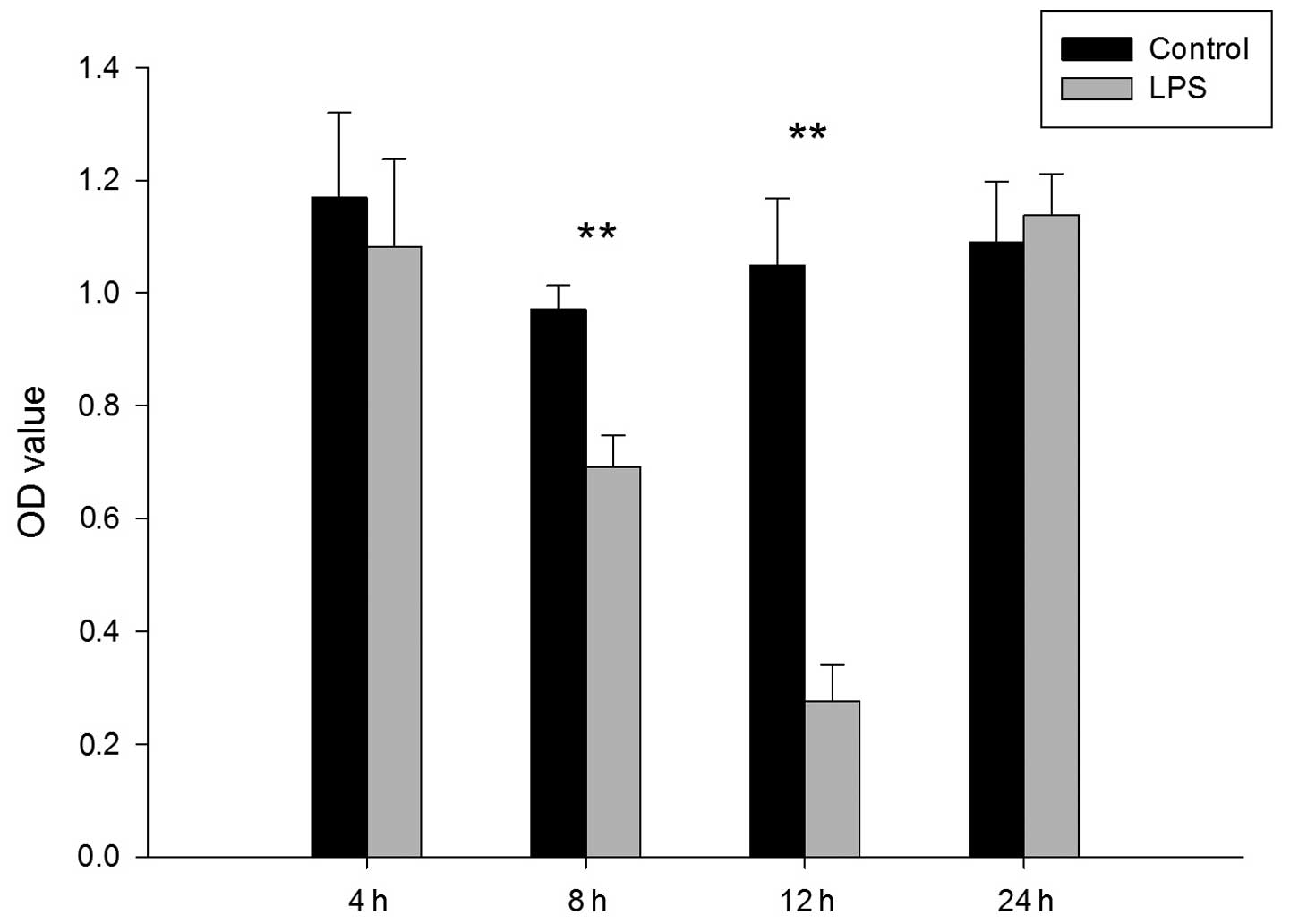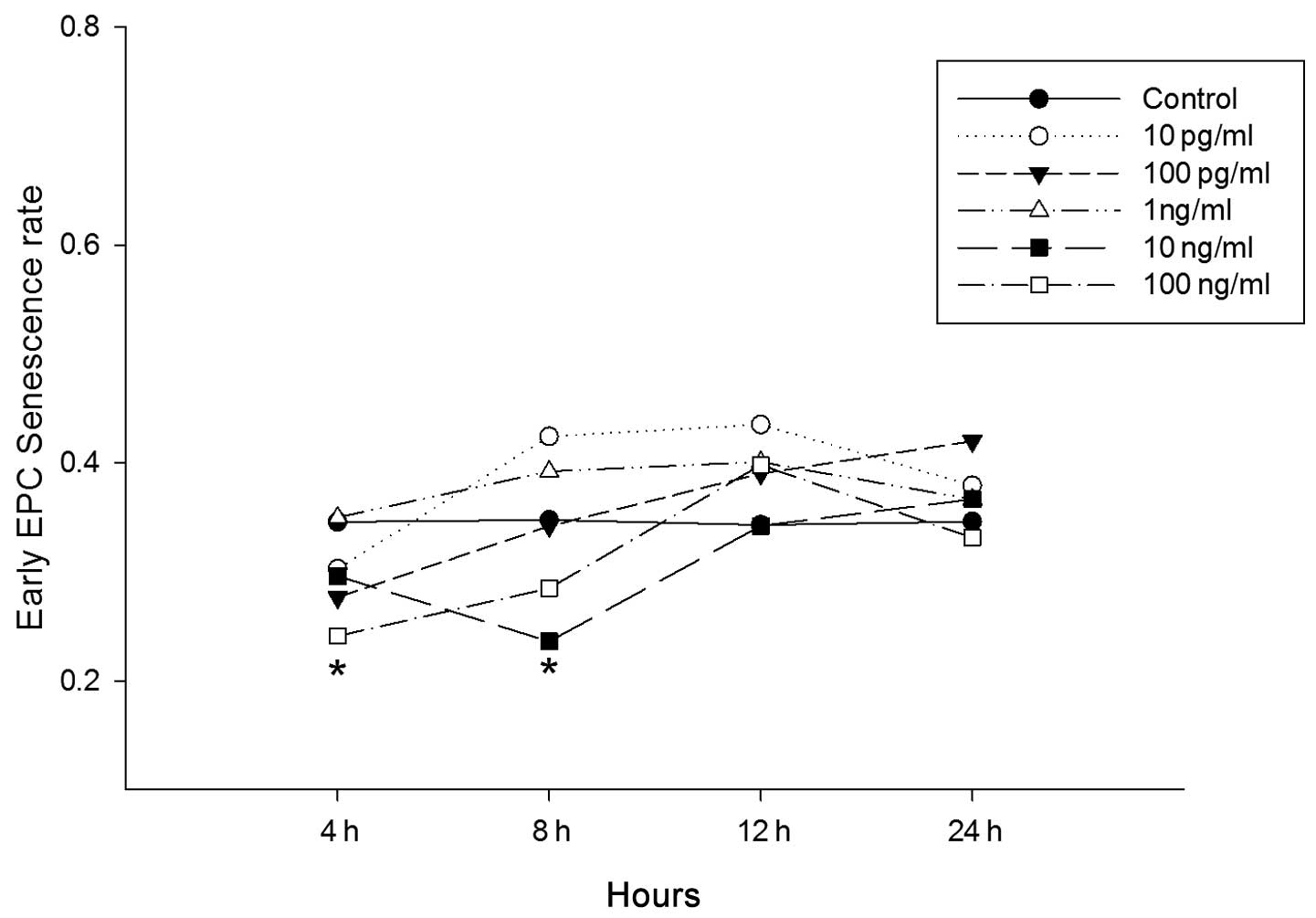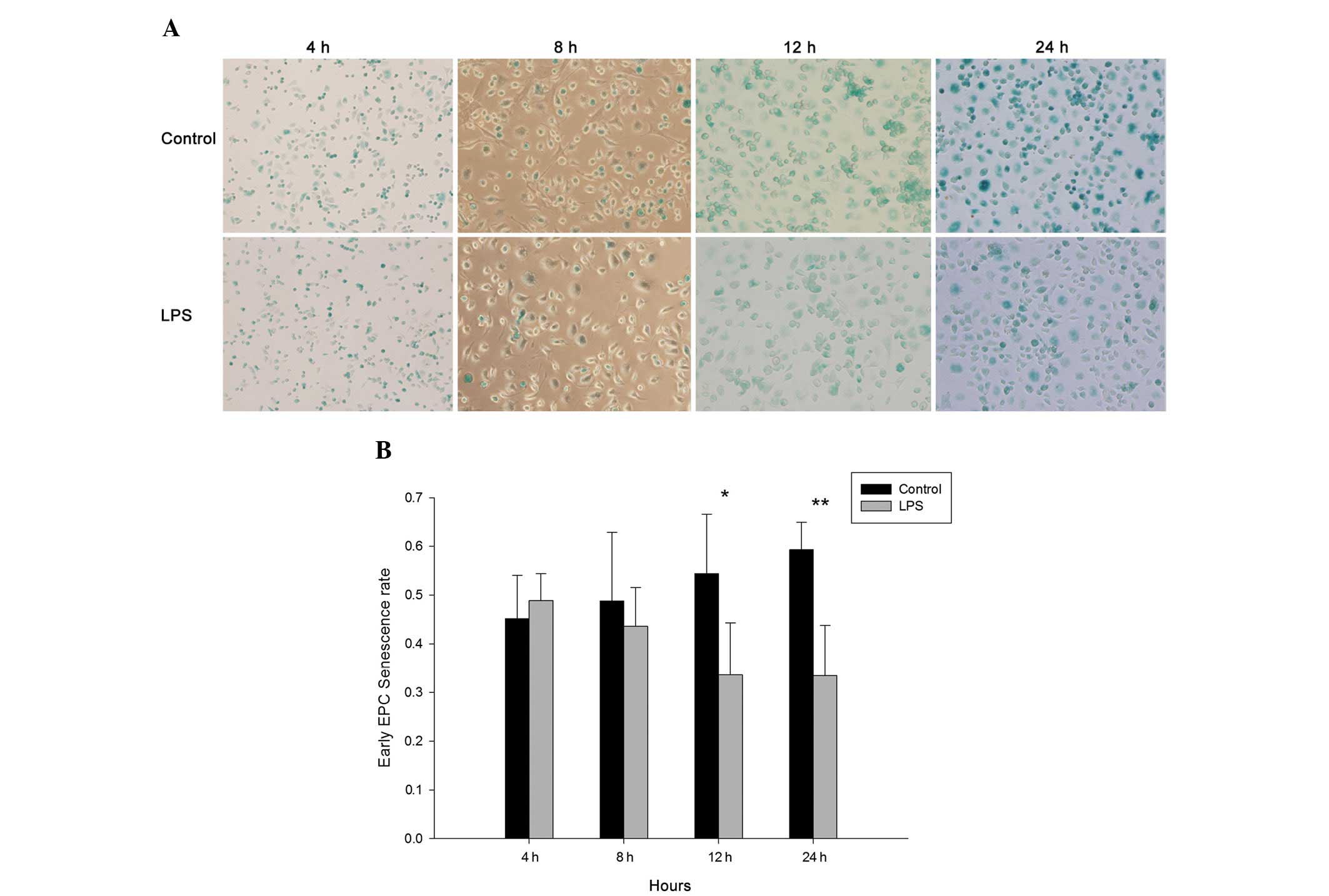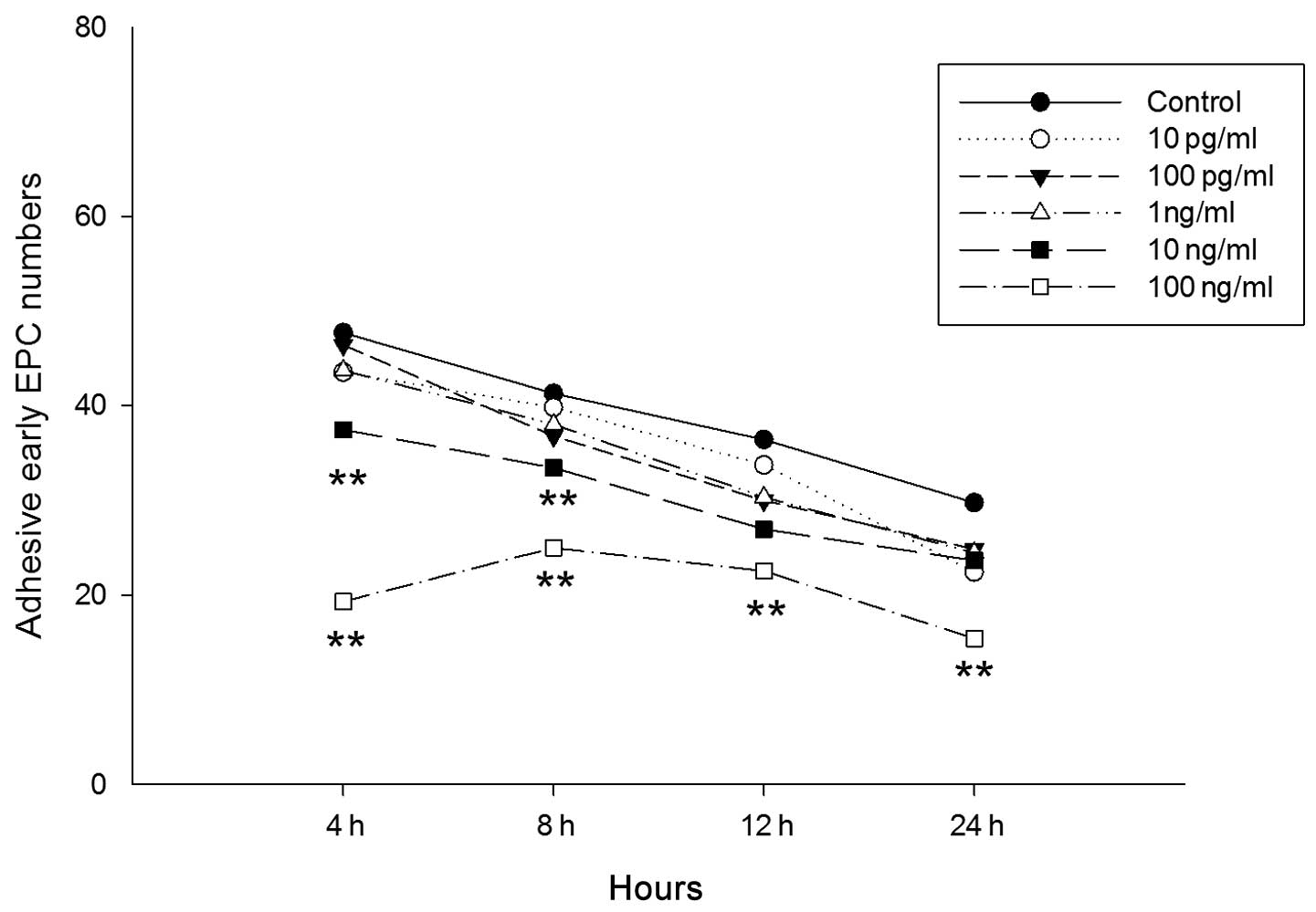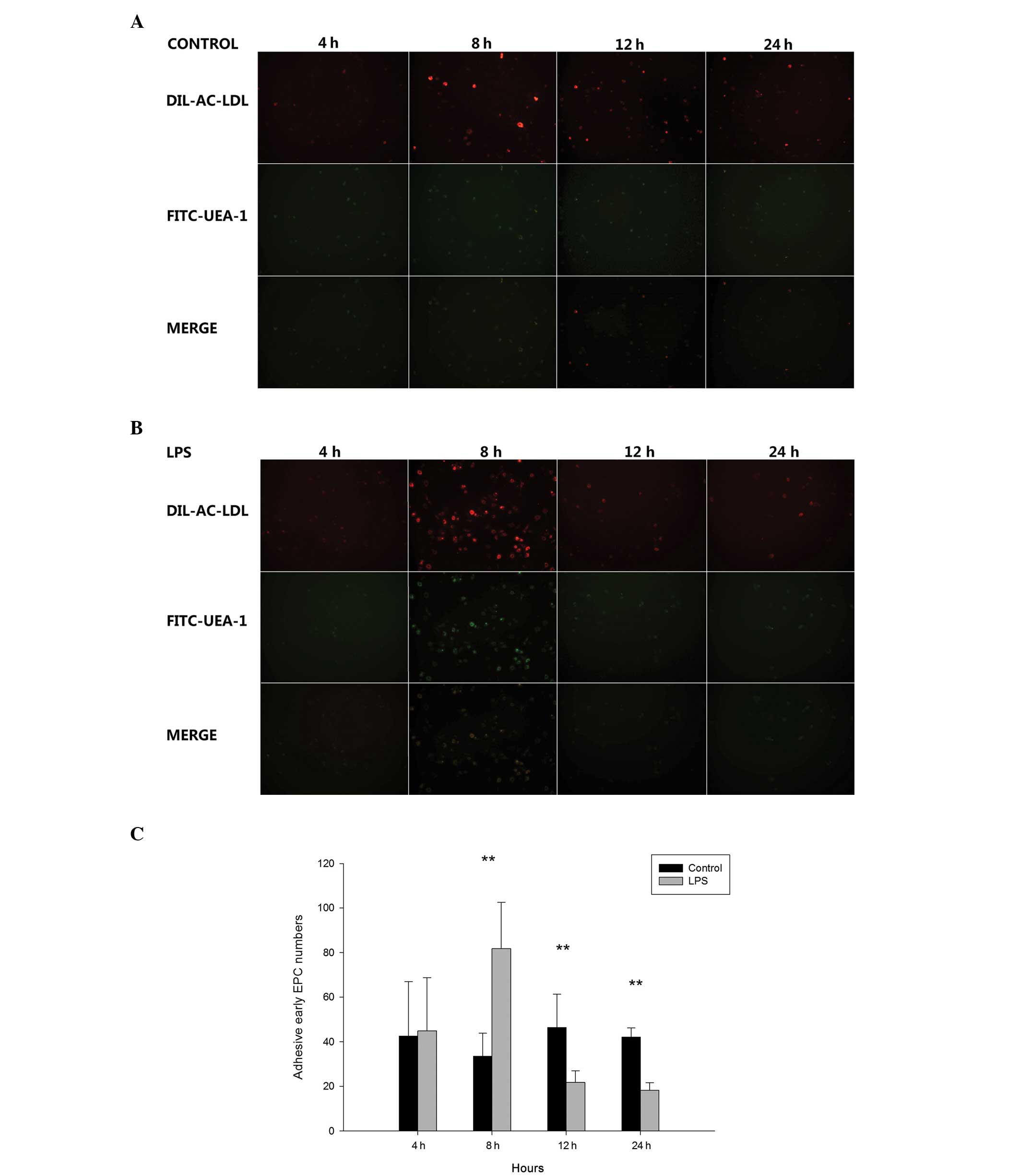|
1
|
Dushianthan A, Grocott MP, Postle AD and
Cusack R: Acute respiratory distress syndrome and acute lung
injury. Postgrad Med J. 87:612–622. 2011. View Article : Google Scholar : PubMed/NCBI
|
|
2
|
Frutos-Vivar F, Nin N and Esteban A:
Epidemiology of acute lung injury and acute respiratory distress
syndrome. Curr Opin Crit Care. 10:1–6. 2004. View Article : Google Scholar : PubMed/NCBI
|
|
3
|
Rubenfeld GD, Caldwell E, Peabody E, et
al: Incidence and outcomes of acute lung injury. N Engl J Med.
353:1685–1693. 2005. View Article : Google Scholar : PubMed/NCBI
|
|
4
|
Jacobson JR: Pharmacologic therapies on
the horizon for acute lung injury/acute respiratory distress
syndrome. J Investig Med. 57:870–873. 2009.PubMed/NCBI
|
|
5
|
Asahara T, Murohara T, Sullivan A, et al:
Isolation of putative progenitor endothelial cells for
angiogenesis. Science. 275:964–967. 1997. View Article : Google Scholar : PubMed/NCBI
|
|
6
|
Asahara T, Takahashi T, Masuda H, et al:
VEGF contributes to postnatal neovascularization by mobilizing bone
marrow-derived endothelial progenitor cells. EMBO J. 18:3964–3972.
1999. View Article : Google Scholar : PubMed/NCBI
|
|
7
|
Burnham EL, Taylor WR, Quyyumi AA, Rojas
M, Brigham KL and Moss M: Increased circulating endothelial
progenitor cells are associated with survival in acute lung injury.
Am J Respir Crit Care Med. 172:854–860. 2005. View Article : Google Scholar : PubMed/NCBI
|
|
8
|
Lam CF, Liu YC, Hsu JK, et al: Autologous
transplantation of endothelial progenitor cells attenuates acute
lung injury in rabbits. Anesthesiology. 108:392–401. 2008.
View Article : Google Scholar : PubMed/NCBI
|
|
9
|
Kähler CM, Wechselberger J, Hilbe W, et
al: Peripheral infusion of rat bone marrow derived endothelial
progenitor cells leads to homing in acute lung injury. Respir Res.
8:502007.PubMed/NCBI
|
|
10
|
Mao M, Wang SN, Lv XJ, Wang Y and Xu JC:
Intravenous delivery of bone marrow-derived endothelial progentor
cells improves survival and attenuates lipopolysaccharde-induced
lung injury in rats. Shock. 34:196–204. 2010. View Article : Google Scholar : PubMed/NCBI
|
|
11
|
Rafat N, Dacho C, Kowanetz G, et al:
Therapeutic effects of endothelial progenitor cells in LPS-induced
ARDS. Anasthesiologie & Intensivmedizin. 53:196–208. 2012.(In
German).
|
|
12
|
Yamada M, Kubo H, Ishizawa K, Kobayashi S,
Shinkawa M and Sasaki H: Increased circulating endothelial
progenitor cells in patients with bacterial pneumonia: evidence
that bone marrow derived cells contribute to lung repair. Thorax.
60:410–413. 2005. View Article : Google Scholar
|
|
13
|
Alm AS, Li K, Yang D, Andersson R, Lu Y
and Wang X: Varying susceptibility of pulmonary cytokine production
to lipopolysaccharide in mice. Cytokine. 49:256–263. 2010.
View Article : Google Scholar : PubMed/NCBI
|
|
14
|
Huang PH, Tsai HY, Wang CH, et al:
Moderate intake of red wine improves ischemia-induced
neovascularization in diabetic mice - roles of endothelial
progenitor cells and nitric oxide. Atherosclerosis. 212:426–435.
2010. View Article : Google Scholar : PubMed/NCBI
|
|
15
|
Zhao Y, Gorshkova IA, Berdyshev E, et al:
Protection of LPS-induced murine acute lunginjury by
sphingosine-1-phosphate lyase suppression. Am J Respir Cell Mol
Biol. 45:426–435. 2011. View Article : Google Scholar : PubMed/NCBI
|
|
16
|
Aoyagi T, Yamamoto N, Hatta M, et al:
Activation of pulmonary invariant NKT cells leads to exacerbation
of acute lung injury caused by LPS through local production of
IFN-γ and TNF-α by Gr-1+monocytes. Int Immunol.
23:97–108. 2011.PubMed/NCBI
|
|
17
|
Zhang B, Liu ZY, Li YY, et al:
Antiinflammatory effects of matrine in LPS-induced acute lung
injury in mice. Eur J Pharm Sci. 44:573–579. 2011. View Article : Google Scholar : PubMed/NCBI
|
|
18
|
Yin H, Li X, Yuan B, et al: Heme
oxygenase-1 ameliorates LPS-induced acute lung injury correlated
with downregulation of interleukin-33. Int Immunopharmacol.
11:2112–2117. 2011. View Article : Google Scholar : PubMed/NCBI
|
|
19
|
Wang B, Gong X, Wan JY, et al: Resolvin D1
protects mice from LPS-induced acute lung injury. Pulm Pharmacol
Ther. 24:434–441. 2011. View Article : Google Scholar : PubMed/NCBI
|
|
20
|
Zhao L, Cao F, Yin T, et al: Moderate dose
insulin promotes function of endothelial progenitor cells. Cell
Biol Int. 35:215–220. 2011. View Article : Google Scholar : PubMed/NCBI
|
|
21
|
Wei H, Mao Q, Liu L, et al: Changes and
function of circulating endothelial progenitor cells in patients
with cerebral aneurysm. J Neurosci Res. 89:1822–1828. 2011.
View Article : Google Scholar : PubMed/NCBI
|
|
22
|
Medzhitov R: Toll-like receptors and
innate immunity. Nat Rev Immunol. 1:135–145. 2001. View Article : Google Scholar : PubMed/NCBI
|
|
23
|
Chen H, Bai C and Wang X: The value of the
lipopolysaccharide-induced acute lung injury model in respiratory
medicine. Expert Rev Respir Med. 4:773–783. 2010. View Article : Google Scholar : PubMed/NCBI
|
|
24
|
Chatchavalvanich S, Nonas S, Miller I, et
al: Oxidized phospholipids reduce vascular leak and inflammation in
a rat model of acute lung injury. J Invest Med. 54:S3462006.
|
|
25
|
Dauphinee SM and Karsan A:
Lipopolysaccharide signaling in endothelial cells. Lab Invest.
86:9–22. 2006. View Article : Google Scholar
|
|
26
|
Ghaly T, Rabadi MM, Weber M, et al:
Hydrogel-embedded endothelial progenitor cells evade LPS and
mitigate endotoxemia. Am J Renal Physiol. 301:F802–F812. 2011.
View Article : Google Scholar : PubMed/NCBI
|
|
27
|
He J, Xiao Z, Chen X, et al: The
expression of functional Toll-like receptor 4 is associated with
proliferation and maintenance of stem cell phenotype in endothelial
progenitor cells (EPCs). J Cell Biochem. 111:179–186. 2010.
View Article : Google Scholar : PubMed/NCBI
|
|
28
|
Hoetzer GL, Van Guilder GP, Irmiger HM,
Keith RS, Stauffer BL and DeSouza CA: Aging, exercise, and
endothelial progenitor cell clonogenic and migratory capacity in
men. J Appl Physiol 1985. 102:847–852. 2007. View Article : Google Scholar : PubMed/NCBI
|
|
29
|
Dimmeler S and Vasa-Nicotera M: Aging of
progenitor cells: limitation for regenerative capacity? J Am Coll
Cardiol. 42:2081–2082. 2003. View Article : Google Scholar : PubMed/NCBI
|
|
30
|
Widmann TA, Willmann B, Pfreundschuh M and
Beelen DW: Influence of telomere length on short-term recovery
after allogeneic stem cell transplantation. Exp Hematol.
33:1257–1261. 2005. View Article : Google Scholar : PubMed/NCBI
|
|
31
|
Di Stefano R, Barsotti MC, Armani C, et
al: Human peripheral blood endothelial progenitor cells synthesize
and express functionally active tissue factor. Thromb Res.
123:925–930. 2009.PubMed/NCBI
|
|
32
|
Alm AS, Li K, Chen H, Wang D, Andersson R
and Wang X: Variation of lipopolysaccharide-induced acute lung
injury in eight strains of mice. Respir Physiol Neurobiol.
171:157–164. 2010. View Article : Google Scholar : PubMed/NCBI
|
|
33
|
Mayr FB, Spiel AO, Leitner JM, Firbas C,
Sieghart W and Jilma B: Effects of low dose endotoxemia on
endothelial progenitor cells in humans. Atherosclerosis.
195:e202–e206. 2007. View Article : Google Scholar : PubMed/NCBI
|

















